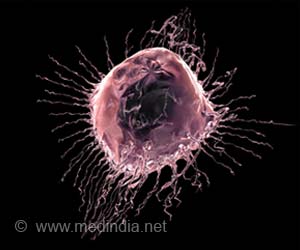Multigene test - still a reliable tool for making decisions regarding breast cancer treatment, finds a new study.

‘Currently Multigene tests are being used in breast cancer treatment to assess the risk of cancer spread (metastasis). This test helpfully provides input when a doctor needs to decide on chemotherapy.’





Since November 2011, the Gynecological Clinic at Klinikum rechts der Isar has used a multigene test for patients with early hormone receptor-positive, HER2-negative breast cancer. Using tissue samples and other clinical indicators, the test helps to determine a patient's risk of metastasis. "Based on the test results, which combine molecular biological properties of the tumor along with the individual factors of tumor size and the presence of cancer in lymph nodes, doctors decide whether chemotherapy is recommended in addition to the surgical removal of the tumor followed by anti-hormone treatment," explains Prof. Marion Kiechle, the Director of the Gynecological Clinic. "In case of a low metastasis risk, chemotherapy may place an unnecessary burden on the patient. But in case of a high risk, it may prevent tumors from relapsing later."
At the San Antonio Breast Cancer Symposium in the USA, one of the world's most important congresses in that field, Dr. Johannes Ettl, Head Physician of the Gyneco-Oncological Outpatient Clinic, Technical University of Munich, Germany has now presented the results of an independent study not commissioned by a test manufacturer of the test used at the Breast Center.
373 patients tested
For the study, Dr. Ettl and his team tracked 373 breast cancer patients from the start of initial treatment and the related multigene test. The test indicated a low risk for 238 patients (63.8%) and a high risk for 135 (36.2%). After a median follows up of 3.5 years, the risk for disease recurrence was twice as high in the high-risk group as in the low-risk group. Similarly, high-risk patients were at five-fold increased risk of developing metastases in other organs. The low-risk and high-risk patients who received chemotherapy in addition to anti-hormone tablets had three-year disease free survival rates of 96.6% and 96.3%, respectively. By contrast, for high-risk patients who did not receive chemotherapy despite the doctors' recommendation based on the test results, the rate was only 91.5%.
Advertisement
Source-Eurekalert















